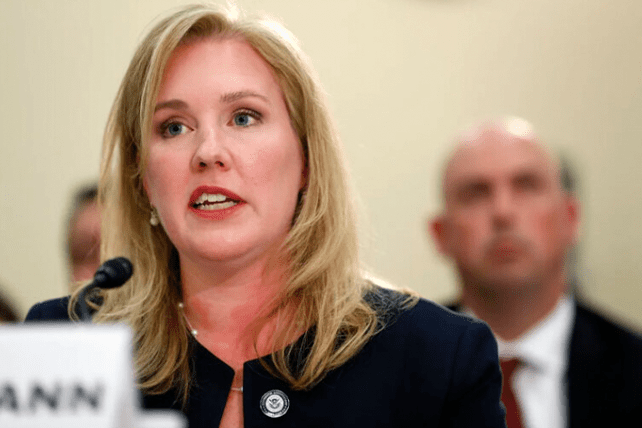What broader factors are at work?
We know that (social media companies) make money off of our fear, anger and outrage. They are incentivized to keep us in this perpetual state of outrage in a way that our forefathers back in the 1950s just didn’t deal with.
But there are also other what I would call society-wide factors — the fact that we are increasingly isolated. In the online space, we get a dopamine hit of belonging, even though it’s not real belonging. That real-life connection is important, and the less we have, the more we have a need that is going unfilled, which can be exploited by extremists.
The other underlying need that we understand motivates people toward extremism is a need for significance. You have all these pastors and Christian authors writing books about what postmodern society has done to our souls, how we have increasingly lost meaning. I compare that to what I know is happening in the extremist movement: One of the most rapidly growing types of violent extremism is a nihilistic version of extremism. It’s like: life does not matter, so I should go out in a blaze of glory.
How has this changed people’s relationship to their faith?
The cultural Christian community has responded to these trials by turning to politics for solutions — turning to a politician as a savior figure, or turning to a political party. ‘If you could only get the government to work right, it would solve my financial difficulties.’ We keep turning to tools of man to solve what are ultimately spiritual problems. We’ve taken power politics and government and turned them into the ultimate thing, as opposed to something that falls under our faith. We’ve reordered, if you will, in the incorrect order: Politics is the premier, as opposed to our trust and faith in Jesus.
Are there trends you are particularly concerned about?
We’re in an election year, so we are increasingly seeing politicians use violent rhetoric. (Arizona U.S. Senate candidate) Kari Lake, two or three weeks ago, said at a rally that you need to put on the armor of God, and ‘maybe strap on a Glock.’ We are also seeing militias regroup: They’re organizing on Facebook again. I’m not sure why Facebook’s not cracking down on that.
More people are embracing the Christian nationalist label in kind of a funny way — almost like a backlash to critiques about Christian nationalism. Most Christian nationalists are not concerning from a security perspective, but there’s a smaller segment who are trying to put some significant rigor into their arguments. I’m thinking in particular of Stephen Wolfe, author of “The Case for Christian Nationalism.” At the end of his book he has these appendices that include a supposed theological justification for why violence is okay.
That is more concerning to me, because he’s laying out with some rigor — and by rigor, I mean lots of words — an argument for why violence, under his interpretation of Scripture, is appropriate for building the kingdom of God. That kind of stuff can influence a certain personality, a certain type of group.
You write, “Can I tell you the good news up front? You are one of the best hopes we have in healing the country and preventing more violence.” How can readers of your book help prevent extremism?
Being disrespected, psychological distress, a recent crisis or feeling like a helpless victim — those are all some of the top reasons why people are radicalized to extremism. I think the church has really great answers for what do we do when we’re disrespected: Scripture tells us Christ experienced the ultimate humiliation and modeled how we endure that. The fact that a large portion of our country thinks that a biblical Christian ethic on sexuality is outdated puts us squarely where Jesus said we would be — that we would be rejected, that our ways are not like the world’s. The answer to that disrespect and that humiliation is in Scripture: we pray for those who persecute us. We do not retaliate in kind.
When I walk pastors through these details, the light bulb comes on. They’re like, ‘Oh, you’re not telling me to do anything new. Because Jesus has had these answers for 2,000 years.’
There really, truly is nothing new under the sun. It’s just that the social sciences caught up to the wisdom of what Jesus taught.
This article originally appeared here.

